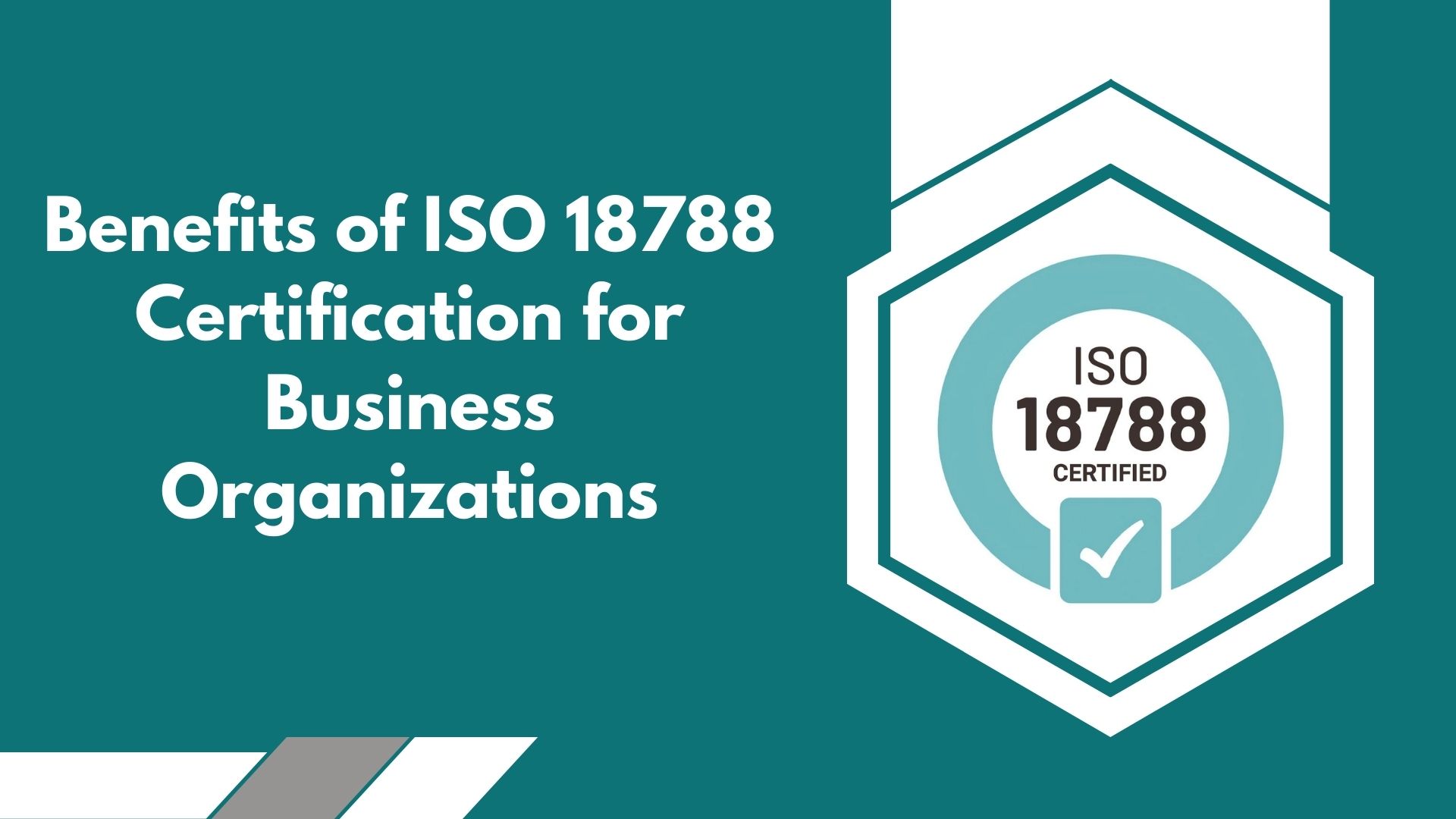What are the Benefits of ISO 18788 Certification for
Business Organizations?
Private security companies (PSCs) are organizations that
provide security services to clients in various sectors and contexts, such as
land, maritime, cyber, and humanitarian. PSCs operate in complex and high-risk
environments, where they may face legal, ethical, and human rights challenges.
Therefore, it is essential for PSCs to demonstrate their professionalism,
accountability, and respect for human rights and the rule of law.
One way for PSCs to achieve this is by obtaining ISO
certification. ISO is the International Organization for Standardization, which
develops and publishes international standards for various industries and
domains. ISO standards provide guidelines and requirements for best practices,
quality management, and performance improvement.
What is ISO 18788?
ISO 18788 is a standard that establishes standards and
provides support to organizations that perform or contract security activities.
It was released in 2015 and is based on the International Code of Conduct for
Private Security Providers (ICoC), the Montreux Declaration, and the United
Nations Guiding Principles on Business and Human Rights.
ISO 18788 establishes a framework for developing,
implementing, operating, tracking, evaluating, sustaining, and improving
security operations management. Governance, legal compliance, risk assessment,
human rights due diligence, incident management, operational control,
performance evaluation, and continuous improvement are all covered.
ISO 18788 is founded on the concepts of responsibility,
openness, human rights respect, and adherence to existing laws and regulations.
It supports organizations in the establishment, implementation, operation,
monitoring, review, maintenance, and improvement of a Security Operations
Management System (SOMS).
What is Security Operations Management System (SOMS)?
A SOMS is a set of policies, procedures, processes and
controls that enable an organization to manage its security operations
effectively and efficiently. It also helps to ensure that the organization
meets the expectations and needs of its clients and other stakeholders.
What are the Benefits of ISO 18788 Certification for
Business Organizations?
ISO 18788 is an international standard that specifies the
requirements and provides guidance for organizations that conduct or contract
security operations. ISO 18788 helps business organizations to establish,
implement, maintain and improve a Security Operations Management System (SOMS).
A SOMS also helps an organization to demonstrate:
- Execution of professional security activities
in order to fulfil the needs of clients and other stakeholders.
- Accountability
to law and respect for human rights
- Consistency
with voluntary commitments to which it subscribes.
What are the challenges coming in obtaining ISO 18788
certification?
The challenges of ISO 18788 certification for PSCs include:
- Meeting
the rigorous requirements and expectations of the standard
- Investing
time and resources to implement and maintain the management system.
- Undergoing
regular audits by accredited certification bodies
- Adapting
to changing legal and regulatory environments
Why is ISO
18788 important?
ISO 18788 is
important for several reasons:
- Enhancing
their reputation and credibility within the private security industry and among
clients and stakeholders
- Demonstrating
their commitment to ethical conduct and human rights protection
- Improving
their performance and efficiency by applying best practices and standards.
- Reducing
their exposure to legal and reputational risks by complying with applicable
laws and regulations.
- Increasing
their competitiveness and market access by meeting the expectations and
requirements of potential clients.
- Contributing
to the development of a more professional and responsible private security
industry
How to achieve ISO 18788 certification?
To achieve ISO
18788 certification, an organization needs to follow these steps:
1. Conduct a gap
analysis to identify the current state of its SOMS and the areas that need
improvement.
2. Develop or
update its SOMS documentation, such as policies, procedures, processes, and
records.
3. Implement its
SOMS throughout its organization and ensure that all personnel are aware of
their roles and responsibilities.
4. Conduct
internal audits to verify the effectiveness of its SOMS and identify any
nonconformities or opportunities for improvement.
5. Take
corrective actions to address any nonconformities or issues identified during
the internal audits.
6. Hire an
accredited certification body to conduct an external audit of its SOMS and
verify its compliance with ISO 18788 requirements.
7. Receive a
certificate of conformity from the certification body if the external audit is
successful.
8. Maintain and
improve its SOMS through regular monitoring, review, and evaluation.
Achieving ISO
18788 certification can be a challenging but rewarding process for any security
organization. It requires a strong commitment from the top management and the
involvement of all personnel. It also requires a continuous improvement mindset
and a willingness to learn from best practices.
Conclusion
ISO certification is a valuable Certificate for PSCs to demonstrate
their professionalism, accountability, and respect for human rights. It can
help them improve their quality management, performance improvement, risk
reduction, client satisfaction, and market access. However, it also requires a
significant commitment of time, resources, and effort to achieve and maintain.
PSCs that are interested in obtaining ISO certification
should consult with experts in the field, such as certification bodies or
consultants. They should also conduct a gap analysis to identify their
strengths and weaknesses in relation to the standards. They should then develop
an action plan to implement the necessary changes and improvements.
ISO certification is not a one-time event but a continuous
process of learning and improvement. PSCs that are certified should regularly
monitor their compliance with the standards and address any non-conformities or
opportunities for improvement. They should also keep abreast of the latest
developments in the industry and update their policies and procedures
accordingly.

